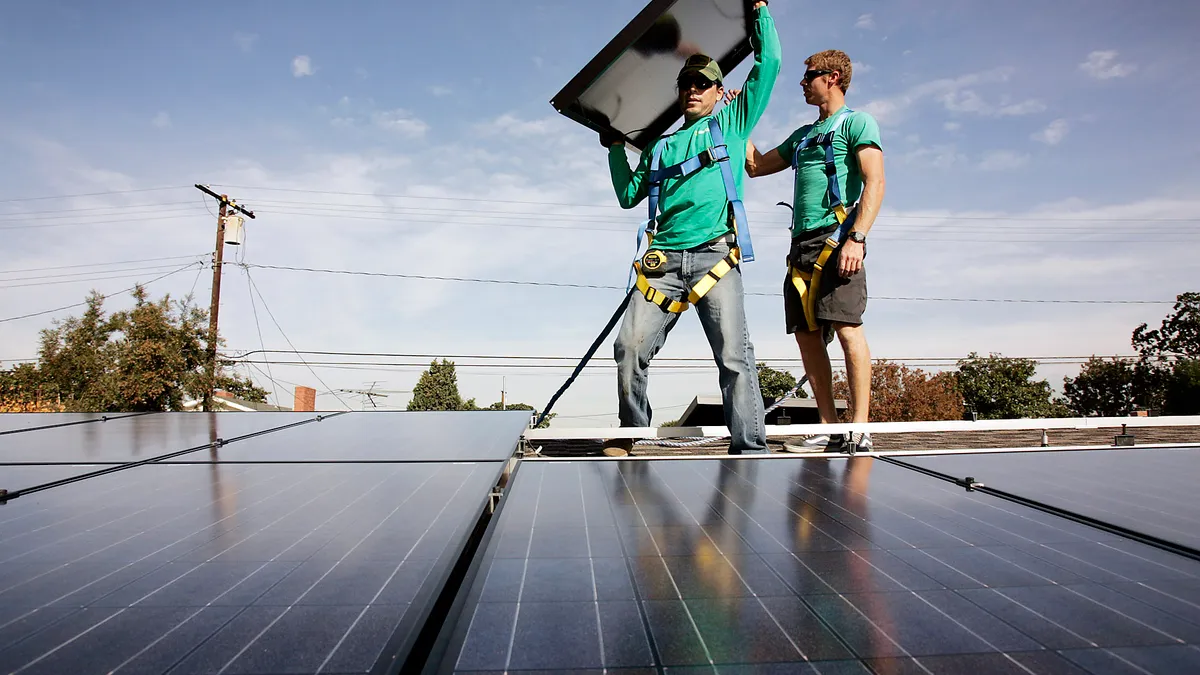Dive Brief:
- The Massachusetts Department of Public Utilities (DPU) on Thursday issued an order approving compensation for 1,600 MW of new solar projects, launching an eagerly-awaited incentive program just as the state's market was showing signs of weakness.
- Regulators say the SMART program, which will be administered by the Department of Energy Resources, will save ratepayers an estimated $4.7 billion over current programs. It targets projects under 5 MW, particularly on rooftops, parking lots and landfills.
- The Solar Massachusetts Renewable Target (SMART) program was authorized by state legislators in 2016 to incentivize development of solar resources. The program was expected to launch this summer and the DPU's order is the final regulatory step.
Dive Insight:
Massachusetts is a top-10 state for solar with more than 2.2 GW of capacity, but installations took a hit this year as net metering caps were reached and the SMART program rollout moved slower than anticipated.
Now that the SMART program has funding approved, solar developers can turn their attention to capitalizing on the incentives. The industry turned up the heat on Gov. Charlie Baker, R, last week, warning of job losses if there was not more clarity on what the final incentives would look like.
"Solar projects have been stalled across the Commonwealth for more than a year now," Vote Solar Senior Director Sean Garren said in a statement. "These projects will mean local investment, new jobs and property taxes, as well as a cleaner and more resilient energy system."
The program will provide "more competitive incentives to solar developers," ultimately resulting in ratepayer savings compared to the existing solar incentive programs, DPU Chairman Angela O'Connor said in a statement.
And the program will prod the development of more than just solar energy.
"The SMART program will be the first in the nation to offer incentives to solar projects that are paired with storage," Baker said in a statement.
SMART will provide compensation to developers and owners of new solar projects under 5 MW in size in the territory of an investor-owned utility (IOU) through bill credits. Regulators rejected the IOUs' request to put a cap on bill credits to individual customers signed up for community solar. They also denied a utility proposal to allow program costs to be recovered through a fixed charge.
Instead, the DPU said, all ratepayers will be required to contribute to program costs through a volumetric charge, which is expected to result in lower overall costs for residential ratepayers.
Solar advocates said they were still examining the order, but cheered its passage and expressed relief. Getting the SMART program up and running "will help get the Massachusetts solar market moving again," David Gahl, director of state affairs for the Solar Energy Industries Association, said in a statement.














